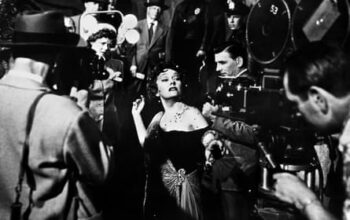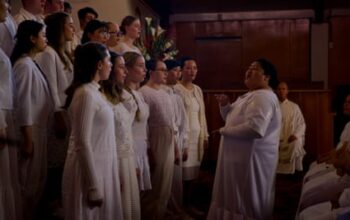A few years ago I went on a pilgrimage to West Lulworth in Dorset. My wife, Linda, came with me. I stood on the shore beside the geographically fascinating Stair Hole and shouted: “Candice Marie, you are standing on sedimentary limestone!” To which Linda, who had walked up to the top of the cliff, duly replied: “I can’t hear you, Keith.” After which we went to Corfe Castle and had a theatrical row about who got to hold the guidebook before going in search of the dungeons.
To be clear, this was no marital tiff – rather, it was a reenactment of one of our favourite movies, Mike Leigh’s Nuts in May (Internet Archive). The story of a would-be idyllic camping holiday that turns into a social nightmare for pompous Keith Pratt (Roger Sloman) and his infantalised wife, Candice Marie (Alison Steadman), Nuts in May, first broadcast as a BBC Play for Today in January 1976, is one of the funniest films I have ever seen. Linda bought me a copy on VHS after I’d had back surgery in the 90s and could do nothing but lie on the floor. I laughed so hard I nearly put myself back in hospital.
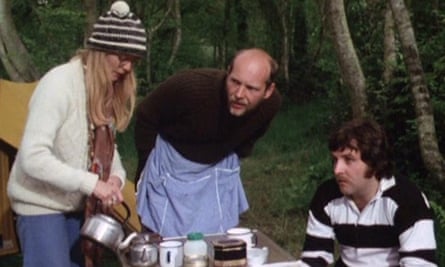
Born in 1943, raised in Salford and as productive as ever in his 80s, Leigh has created work as diverse as the Palme d’Or-winning family drama Secrets & Lies (1996) and the grand-scale historical epic Peterloo (2018), running the gamut from side-splitting comedy to heartbreaking tragedy and all points in between. Take his latest film, Hard Truths (2024), which opens in the UK in the new year. The last feature to be shot by Leigh’s longtime cinematographer, Dick Pope, who died in October, it focuses on Pansy focuses on Pansy – brilliantly played by Marianne Jean-Baptiste – a tortured soul whose bitterness and anger are gradually revealed to be symptoms of an underlying trauma and deep-seated depression.
Pansy plays like the flip side of Sally Hawkins’s relentlessly upbeat Poppy in Happy-Go-Lucky (2008); indeed, Hard Truths could have been called Unhappy-Go-Unlucky. Yet both films share the same humanist traits that run through all of Leigh’s work, depicting three-dimensional characters whose circumstances and situations have been meticulously thought through by the director and his cast.
Leigh’s creative method, for which he originally used the term “devised and directed” rather than “written and directed”, is a singular process that involves assembling a group of actors and getting them to research and develop their characters in detail, guided by the writer-director. Gradually, Leigh discovers, or perhaps uncovers, the story and dialogue of the film – a writing process that has resulted in a string of perfectly crafted dramas with an uncanny element of verisimilitude. Each player is completely immersed in their role, and each turn of events provokes reactions that are utterly believable.
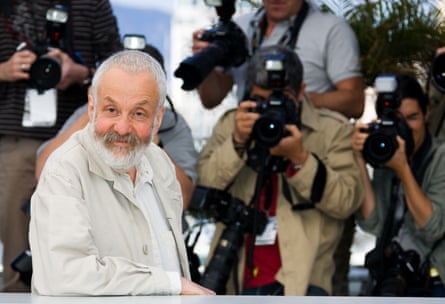
When Timothy Spall played JMW Turner in Mr Turner (2014), his research involved reading everything he could find on the nature of light, and learning to paint – something that has since become a passion. Similarly, when creating the Venice Golden Lion-winning Vera Drake (2004), in which Imelda Staunton plays a 1950s woman who performs illegal abortions, none of the cast members playing Vera’s family knew the true subject of the drama until they workshopped a scene in which the police unexpectedly arrive to arrest Vera. The sense of shock was, apparently, palpable.
The breadth of Leigh’s films is remarkable. Who else could have gone from the intimate double-act drama of Career Girls (1997; Apple TV+), with stellar performances by Katrin Cartlidge and Lynda Steadman, to the vast musical-theatre period canvas of Topsy-Turvy (1999), and then back to the smaller-scale modern-day troubles of All or Nothing (2002; Amazon Prime Video) without ever losing that crucial sense of authenticity? And who else could have drawn from David Thewlis the defining nihilistic role of Johnny in Naked (1993), a film that harks back to some of the darkest themes of Leigh’s Meantime (1983; Apple TV+), while prophetically looking forward to a vituperative strain of disenfranchised masculinity that has since proliferated in the modern world?
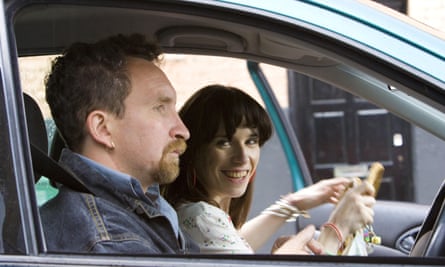
Over the years I’ve interviewed Leigh several times, and we’ve talked about films that deal with poverty, bereavement, depression, abortion, even historical massacres. Yet through it all, the director has retained a surprisingly optimistic enthusiasm for humanity. “I like making people laugh,” he once told me cheekily when we were deep in a discussion about his intense dramatic process. He was teasing me, but he has made me laugh so much over the years; from the toe-curling farce of the 1977 classic Abigail’s Party (“Tony, d’you like olives? No, they’re horrible, aren’t they?”), available on Internet Archive, to the menu of the Regret Rien restaurant – Liver in Lager; Prune Quiche; Pork Cyst – in 1990’s Life Is Sweet (Amazon Prime) and the deranged driving instructor of Happy-Go-Lucky (“En Ra Ha! EN RA HA!”).
As Leigh has always understood, comedy and tragedy are real-life bedfellows. In his films we find both, truthfully intertwined.
-
All titles in bold are widely available to stream unless otherwise specified.
What I’m also enjoying
Cheaters
(BBC One/iPlayer)
Susan Wokoma is fabulous in the second series of this compellingly frank relationship comedy, all eight episodes of which I binged in a single sitting. Unshackled from their previous partners, Fola and Josh face up to life without the cheating – with very different results. Bite-size episodes make this addictively moreish viewing.
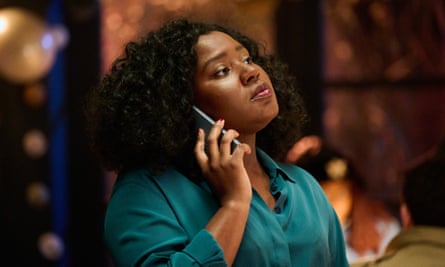
Layla
(in UK and Irish cinemas now)
Amrou Al-Kadhi’s sparkling feature debut may be a very personal tale but it has universal appeal, touching on themes that will resonate regardless of age, race, gender or sexuality. Bilal Hasna tears it up as the non-binary British-Palestinian drag artist whose life is turned upside down through an unexpected liaison with Louis Greatorex’s more “conventional” Max. Pizzazz with depth.
Source: theguardian.com
